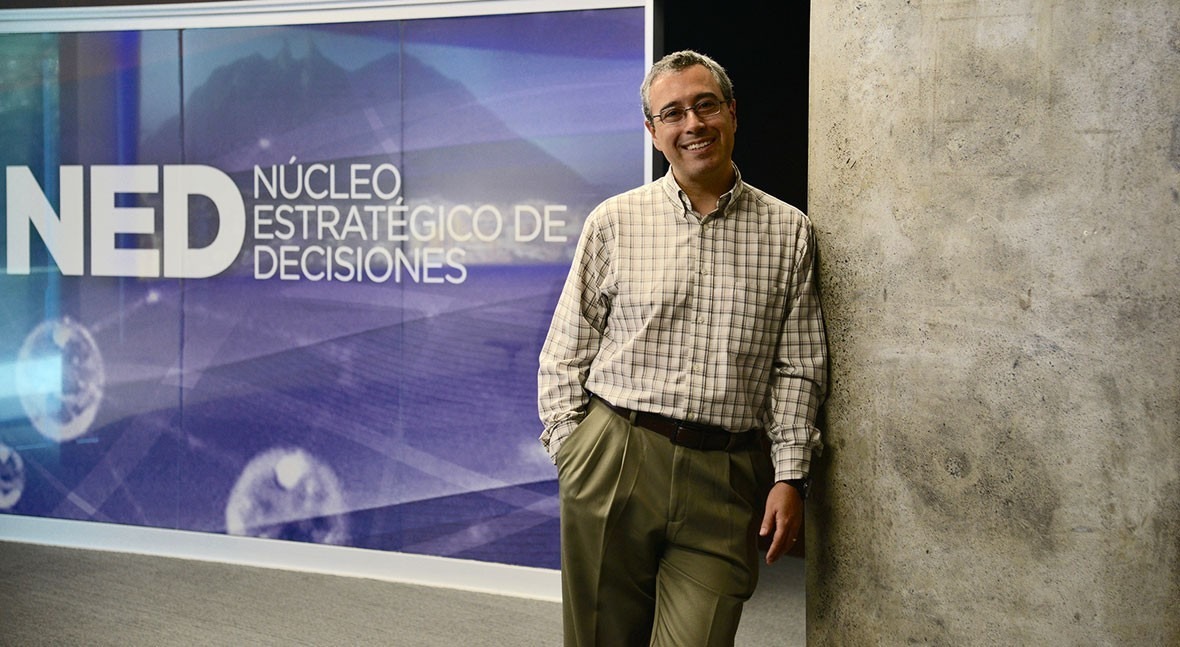Alberto Mendoza Domínguez is the Director of the Latin American and Caribbean Water Centre since August of 2017, and leads the Energy and Climate Change Research Group at the Monterrey Institute of Technology and Higher Education since 2014. With a PhD in Environmental Engineering, his career path has focused on science, research and teaching.
In this interview we learn about the objectives of the centre he is in charge of, focused on applied research on sustainable water use in Latin America and the Caribbean.
Question - How did the Latin American and Caribbean Water Centre come into being? What objectives were pursued with its creation?
Answer - The Latin American and Caribbean Water Centre was created in 2008 as a partnership of the Monterrey Institute of Technology and Higher Education, the Femsa Foundation and the Inter-American Development Bank (IDB). The three parties shared the objective of establishing a water research centre different from those existing in other universities. A fundamental aspect was that the Water Centre should become a very important actor with regards to building capacity to support water funds in the different regions of Latin America and the Caribbean, acting as a technical-scientific platform that provides valuable information to achieve a more sustainable management of water resources.
At the Water Centre we want to advance towards applying data science to water and environmental issues
Q - What are the centre's main lines of research?
A - The main research activities at the centre deal with scientific knowledge and the different disciplines involved in achieving a more sustainable management of the resource. Firstly, we ensure that traditional scientific areas such as environmental engineering, chemistry and earth science are taken into account when it comes to managing the water cycle, but we also consider other disciplines that help us improve our understanding of water resources use efficiency. I am talking in particular about the nexus between water, energy, and food. In addition, we want to advance towards applying data science to water and environmental issues. We used to see these disciplines separately and now we try to integrate them to leverage what these new knowledge areas can offer.
Q - What projects are you currently working on?
A - We have a project together with the IDB which is the consolidation of the Strategic Decision Core [Núcleo Estratégico de Decisiones or NED], a singular platform in Latin America. It enables us to have technical-scientific studies that are very important for water resources management and use them at the institutional level to formulate public policies. Another project in which we are establishing strong connections among different disciplines deals with the water-energy nexus. We work on energy efficiency projects in urban settings, linking it to sustainable water use, that is, having water and energy collection technologies to have urban settings with zero consumption. In addition, we work in the water environment of the Monterrey Metropolitan Area (Mexico) to learn about water infrastructure in the north-west of the country. We have other projects where we are exploring new sensors to study water quality in different settings using nanotechnology.
Q - What would you say are the major achievements of the centre?
A - I think one of the key roles of the Water Centre is that it acts as a platform to build human resources capacity, through its capacity building and continuing education programmes. I would also highlight the experience obtained by our graduate researchers, whether master or PhD students, or postdoctoral researchers, using the research and development infrastructure we have in our testing labs, even in the NED system itself. Everything is intended to build the capacity of talented individuals who will eventually contribute new and better solutions to the water sector.
Our Water Network allows us to document studies in the NED system and serves as a mechanism of communication among different water actors
Q - What resources do you have to meet the needs of society with regards to water?
A - The Centre has research and development infrastructure to engage in front-line projects. We also have first-class testing labs where we carry out complex studies to detect and monitor pollutant dynamics in different aquatic environments. In addition, we have development infrastructure to devise new solutions for the treatment of pollutants. We use platforms to monitor water resources in space and time within large river basins, using geographic information systems. We use three dimensional mathematical models to monitor water behaviour in different physical environments. Our Latin American and Caribbean Water Network allows us to document studies in the NED system and serves as a mechanism of communication among different water actors, to detect the major challenges in the region and identify solutions. Finally, we have our own meteorological network to monitor what happens in the Monterrey Metropolitan Area and assess different risk scenarios with regards to water.



